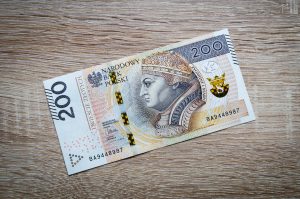Forex trading has become increasingly popular over the years, with many individuals and institutions diving into the market to earn profits. However, with the lucrative nature of the market comes the risk of losing money. As a result, traders need to understand the concept of zero-sum trading and who guarantees it.
Zero-sum trading refers to a situation where one trader’s gain is another trader’s loss. In other words, for every dollar gained in the market, there is a corresponding loss. This concept applies to all financial markets, including the forex market.
In forex trading, traders buy or sell currencies with the hope of earning a profit. For instance, a trader can buy the US dollar and sell the euro with the expectation that the US dollar will appreciate in value against the euro. If the trade is successful, the trader earns a profit, and if it’s not, the trader incurs a loss.
The question then arises: Who guarantees the zero-sum trade in forex?
Unlike other financial markets such as the stock market, where trades are guaranteed by a central clearinghouse, the forex market operates differently. The forex market is decentralized, meaning that there is no central clearinghouse that guarantees trades.
In the forex market, trades are executed through a network of banks, financial institutions, and individuals. Thus, each counterparty in the trade is responsible for fulfilling their obligations. In other words, the buyer must pay for the currency they bought, and the seller must deliver the currency they sold.
To ensure that trades are executed correctly, the forex market relies on the creditworthiness of each counterparty. Banks and financial institutions are required to maintain a sufficient amount of capital to cover their trading obligations. This requirement is known as the capital adequacy ratio (CAR) and is set by regulatory bodies such as the Basel Committee on Banking Supervision.
The CAR ensures that banks and financial institutions have enough capital to cover their trading obligations and absorb potential losses. This requirement also helps to maintain market stability by reducing the risk of default.
In addition to the CAR requirement, the forex market also relies on collateral to ensure that trades are executed correctly. Collateral is an asset or property that a trader pledges as security for a loan or a trade. In forex trading, collateral is known as margin.
When a trader opens a forex trade, they are required to deposit a certain amount of margin with their broker. The margin acts as collateral and ensures that the trader has enough funds to cover potential losses. If the trade goes against the trader, the broker can use the margin to cover the losses.
Furthermore, brokers are required to maintain a sufficient amount of capital to cover their clients’ trading obligations. This requirement is known as the net capital rule and is set by regulatory bodies such as the National Futures Association (NFA) in the United States.
The net capital rule ensures that brokers have enough capital to cover their clients’ trading obligations and absorb potential losses. The NFA also requires brokers to segregate their clients’ funds from their own, further reducing the risk of default.
In conclusion, the zero-sum trade in forex is not guaranteed by a central clearinghouse. Instead, the forex market relies on the creditworthiness of each counterparty, collateral, and regulatory requirements such as the CAR and the net capital rule. Traders must understand these concepts to mitigate risks and ensure that their trades are executed correctly.





